Some years ago, the Diocese of Niagara had a Decade of Evangelism. Having a decade of something – it doesn’t really matter what – is something Anglican bishops do every so often to create the illusion that they are men of action not just men wearing tea cosies.
There was, indeed, frenzied activity in the diocese during those ten years. Clergy held meetings, led task-forces and gathered focus groups. To decide on how to define “evangelism”. Alas, after ten long arduous years, the worthy clerics still couldn’t agree, so the project was abandoned.
Not so in The Episcopal Church!
Canon Stephanie Spellers, the canon to the presiding bishop for evangelism, reconciliation and creation care has come up with this:
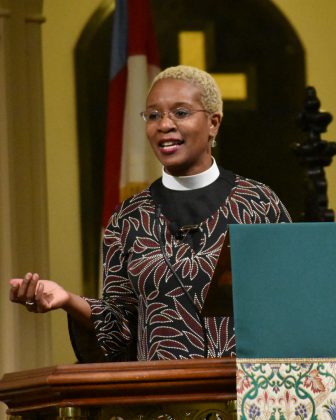 The definition of Episcopal evangelism—we submit it to anybody else who [needs] another way of understanding evangelism. We worked hard on this, too! There was a whole task force! What we came to was: “Evangelism is a spiritual practice where we seek, name and celebrate Jesus’s loving presence in the stories of all people, then invite everyone to more.”
The definition of Episcopal evangelism—we submit it to anybody else who [needs] another way of understanding evangelism. We worked hard on this, too! There was a whole task force! What we came to was: “Evangelism is a spiritual practice where we seek, name and celebrate Jesus’s loving presence in the stories of all people, then invite everyone to more.”
This is so deep, I feel I must repeat it: “Evangelism is a spiritual practice where we seek, name and celebrate Jesus’s loving presence in the stories of all people, then invite everyone to more.” More what? Whose story? Richard Dawkins’ story? We should invite everyone to more atheism? You see the problem.
In case anyone is developing the impression that Spellers is just another crackpot canon, take a look at these profound pearls that dripped effortlessly from her lips:
But no, for certainly most Episcopalians, we can say “the ‘e’ word.” People are like, “Can’t you use a different word?” and we’re like, “No! Actually we can’t!”
[….]
For instance, a lot of people think, we don’t do that. You know, that Episcopalians don’t do that, that that’s what evangelical Christians do. And we’re like, how did you get here?
Anyone with that kind of teenage talent for using “like” as punctuation obviously has something so important percolating in her skull, that it bubbles out unfiltered by the narrow confines of grammar and basic vocabulary.
I’m not a canon, so I don’t have all the disadvantages of Anglican seminary training, but how about this:
Evangelism: the proclamation of the good news of Jesus Christ: that he, the sinless Son of God took our sin upon himself when he died on the cross, suffering the punishment we deserve. Through his atoning sacrifice and resurrection, we are offered the free gift of eternal life and reconciliation with God the Father. And that only took me ten seconds.
Like this:
Like Loading...
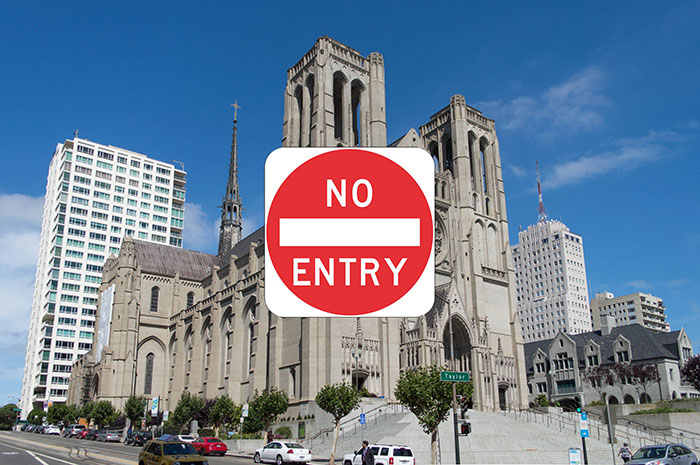


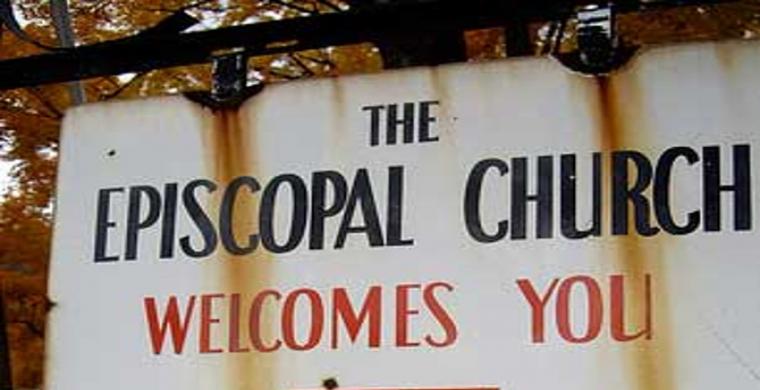
 The definition of Episcopal evangelism—we submit it to anybody else who [needs] another way of understanding evangelism. We worked hard on this, too! There was a whole task force! What we came to was: “Evangelism is a spiritual practice where we seek, name and celebrate Jesus’s loving presence in the stories of all people, then invite everyone to more.”
The definition of Episcopal evangelism—we submit it to anybody else who [needs] another way of understanding evangelism. We worked hard on this, too! There was a whole task force! What we came to was: “Evangelism is a spiritual practice where we seek, name and celebrate Jesus’s loving presence in the stories of all people, then invite everyone to more.”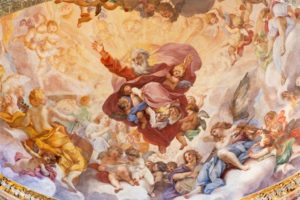 From
From 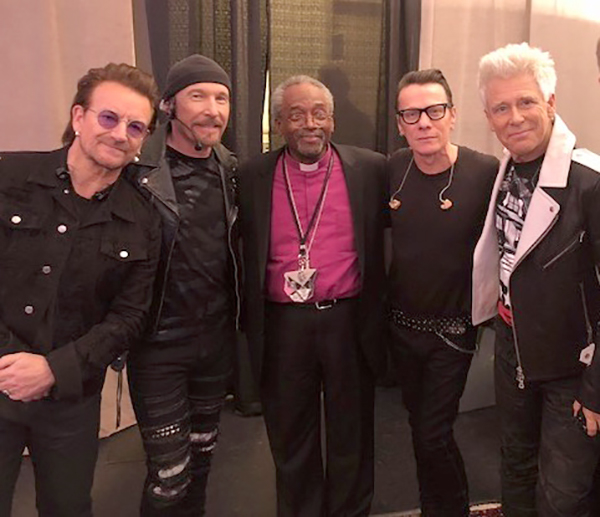
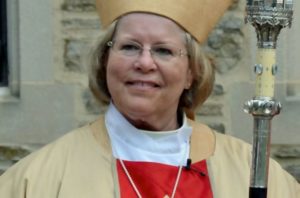 The Anglican Church in the US remains mired in a ‘system of denial and helplessness’ over alcohol abuse among its senior clergy, a damning commission has concluded.
The Anglican Church in the US remains mired in a ‘system of denial and helplessness’ over alcohol abuse among its senior clergy, a damning commission has concluded.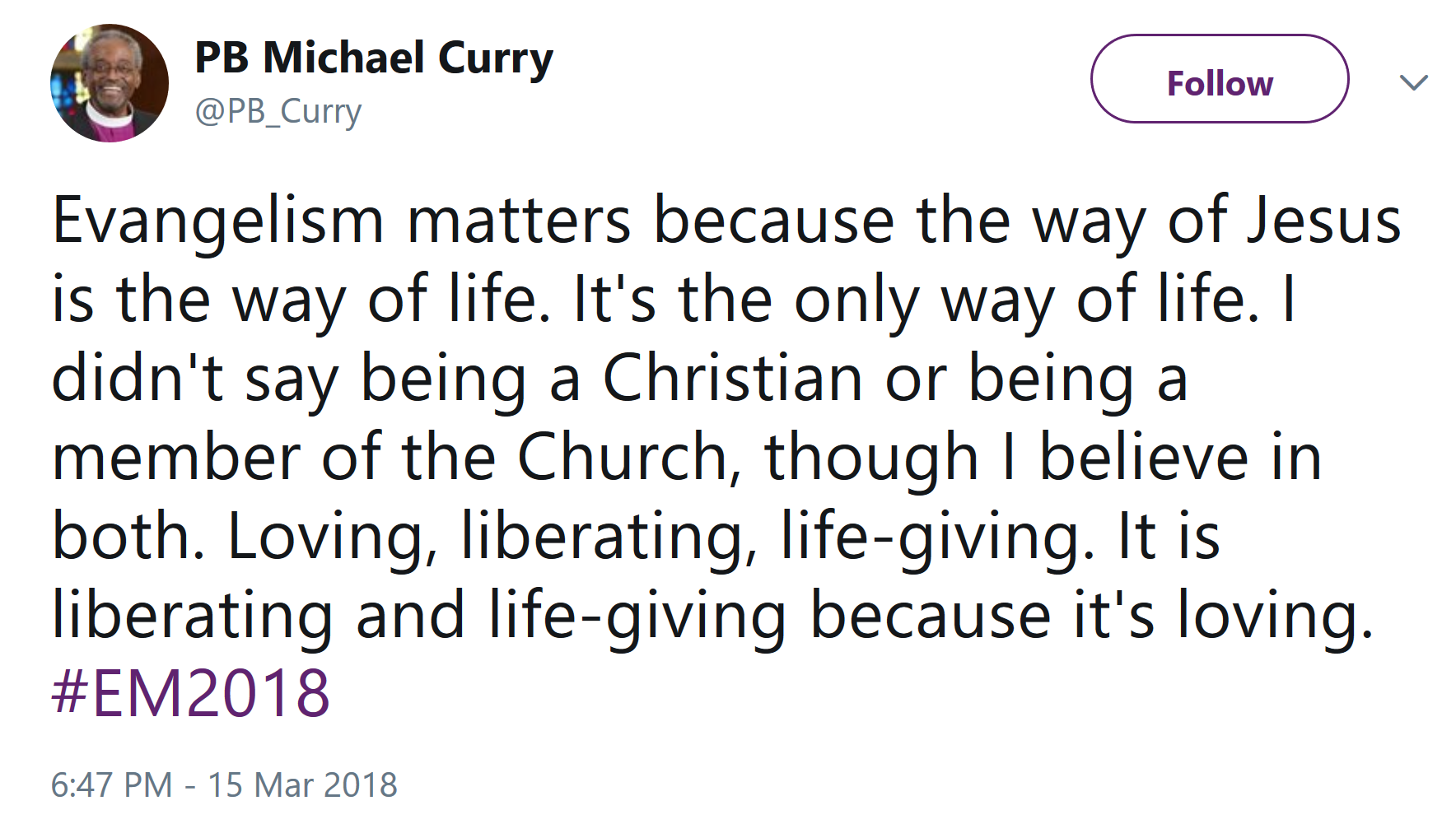
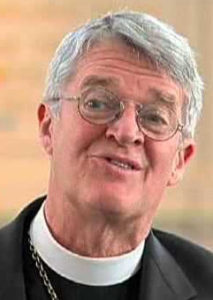 From
From